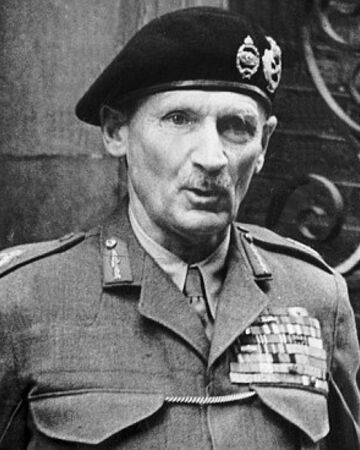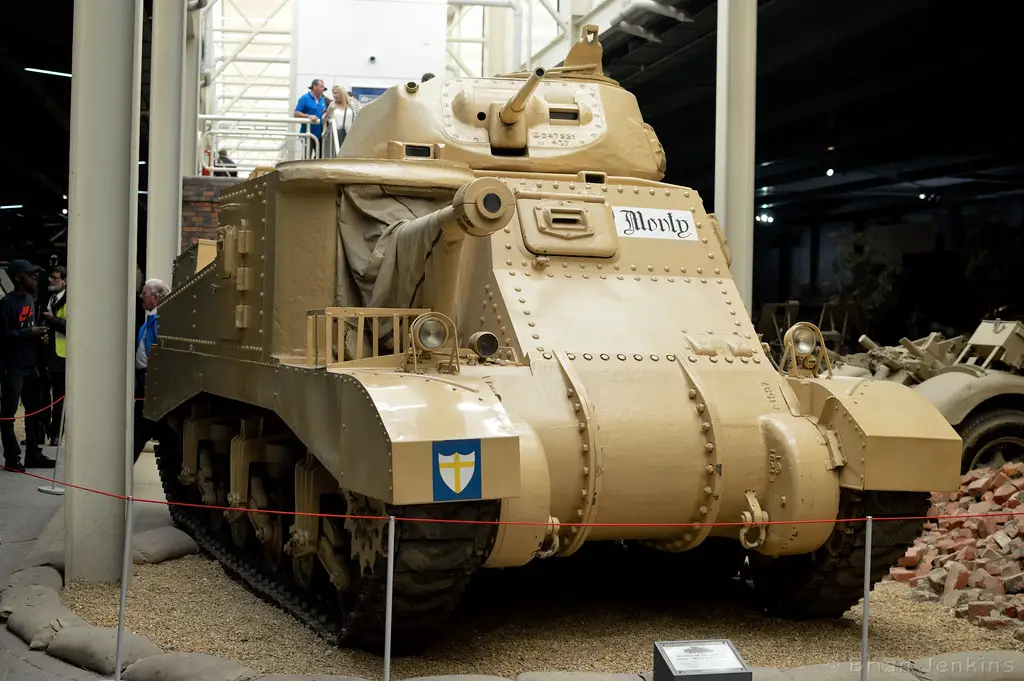Bernard Montgomery, the hero of El Alamein and North Africa, where he succeeded Auchinleck, was one of the most inspirational military commanders of World War Two. Montgomery was also the senior British military commander at D-Day and retained that position within the west European sphere of the war until the war ended.

Bernard Montgomery was born in 1887. He was educated at St. Paul’s School and Sandhurst and in 1908, aged 21, he gained a commission in the Royal Warwickshire Regiment. During World War One, Montgomery served on the Western Front. A highly efficient young officer, he was given a succession of command posts both in Britain and in India and by 1938, he had been promoted to the rank of major-general.
At the outbreak of World War Two, Montgomery was part of the British Expeditionary Force that had to withstand the might of the Wehrmacht’s ‘Blitzkrieg’. Montgomery was given the command of the Third Division (BEF) which had to be evacuated at Dunkirk.
After Churchill’s sacking of Auchinleck after the failure of the first battle at El Alamein, Montgomery was given command of the Eighth Army in North Africa. He was likened to being like a ferret and being as popular as one! However, unlike many senior officers of the day, he went out of his way to meet the soldiers under his command. He lived a lifestyle that was not typical of a general. Though his command base was a large and luxurious North African house, Montgomery lived in a caravan in the garden. Strictly teetotal and anti-smoking, he made sure that his men had a reasonable access to cigarettes. There is no doubt that he was popular with the men in the Eighth Army.
| “One always had the curious of being taught and by a great master. In this connection it is interesting to note that he was privately and affectionately known by those who worked for him at TAC HQ as “Master”.”Lieutenant-Colonel C P Dawney, Military Assistant to Montgomery |
His victory at El Alamein was to turn the tide of the war. The defeat of the Germans at El Alamein, was the first they had experienced and within North Africa, the Germans could only retreat and they quit North Africa in May 1943. It is difficult to overstate the importance of Montgomery’s victory at El Alamein.
|
‘Monty’s Tank’ – used in the North African campaign |
At D-Day, Montgomery commanded the British and Canadian units that were given the task of taking on the main bulk of the German forces at Normandy. This enabled the American Twelfth Army Group to move deeply into France and head the breakout from Normandy. Montgomery wanted a full-scale rush on Berlin via the Ruhr, but this was overruled by the Allies Supreme Commander, Dwight Eisenhower. Montgomery and Eisenhower had a solid professional relationship but ‘Monty’ did not always agree with the overall strategy of Eisenhower who he believed too frequently favoured the plans of the Americans – including the maverick General George Patton.
On September 1st 1944, Montgomery was promoted to field marshal, the highest rank he could reach in the British Army. By now Montgomery commanded the 21st Army Group that succeeded in taking the vital port of Antwerp in Belgium but was involved in the failure at Arnhem. The 21st Group was also deeply involved in the Battle of the Bulge – Germany’s ill-fated attempt to push back the Allies. Montgomery’s group crossed the River Rhine on March 24th 1945. He accepted the formal surrender of the German military at Luneburg Heath on May 4th 1945.
| “Bernard Montgomery was uncompromisingly single-minded. The most conspicuous of all his attributes was his unshakeble confidence in himself, an infectious quality which rapidly spread throughout all ranks in the armed forces and among the general public.”Norman Kirby |
After the end of the war, Montgomery consolidated the status he had. From 1946 to 1948, Montgomery served as Chief of the Imperial General Staff and from 1951 to 1958, he was Deputy Supreme Commander of NATO forces in Europe.
| “His outstanding characteristics were his professional thoroughness in planning set-piece battles and the projection of his self-confidence so as to arouse enthusiasm among his troops.” Alan Palmer |
Montgomery, created a viscount in 1946 in recognition of the part he played in the war, was one of the British Army’s most successful generals. He died in 1976.
